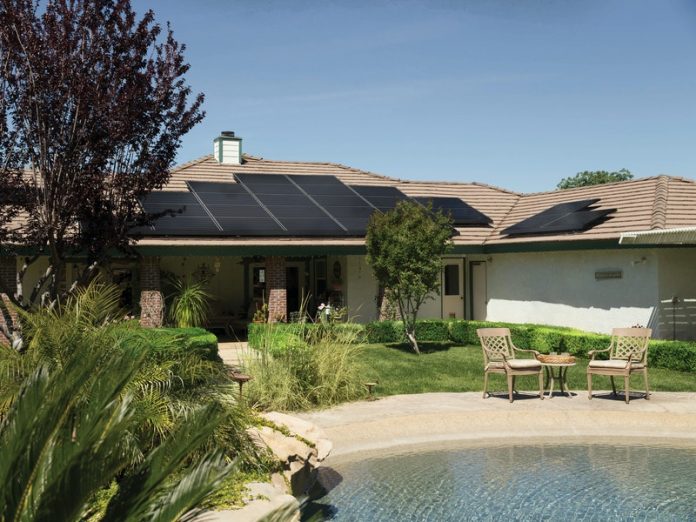The sun is one of nature’s free and most powerful sources of energy. And because of that, people have increasingly opened up to the idea of solar-powered homes. Since 2012, people in the UK have strongly supported solar power developments. This year, there are a total of 84% supporters.
Solar panels, also known as photovoltaic (PV) systems, turn sunlight into electricity. This can power your home using semiconductor technology. Since they use sunlight to store energy, you can save money on your energy bills. Not only that, but they can also help you profit from the excess electricity generated.
To make the most out of your solar panel, you can use solar batteries. They store excess energy that you can use whenever the need arises.
In this guide, you’ll learn how you can benefit from solar batteries. Furthermore, the article will also help you choose the best solar battery for your home.
What is a Solar Battery Panel?
A solar battery is used to store and discharge solar energy (solar electricity) as needed. In off-grid photovoltaic systems, rechargeable solar batteries store excess electricity.
Solar batteries work in the same way as any other rechargeable battery. They are recharged by the sun’s energy. You can use the power stored in the batteries when the weather is bad. It’s also helpful when your solar panels aren’t actively producing power. Listed below is a simplified explanation of the process of using solar batteries.
- Solar panels use the sun to generate direct current (DC) electricity.
- DC electricity is converted to alternating current (AC) electricity through an inverter.
- Your home appliances are powered by AC electricity.
- Your batteries are charged by excess electricity that is not consumed by your appliances.
- Your appliances, then, use the stored energy in your battery during the night.
Why Do You Need Solar Battery Panels in Your Home?
Installing a battery helps ensure that you have a constant power supply. You don’t need to worry about power outages.
Solar batteries are also more efficient, cost-effective, and eco-friendly than generators. Batteries use renewable energy. Generators, on the other hand, release harmful pollutants such as carbon monoxide.
Here are other reasons to buy solar battery panels for your home.
1. You Can Use Your Solar Power as Much as You Can
When you use solar panels, your system is connected to the grid. If your panels don’t produce enough electricity, your home will use the grid to make up the difference.
You pay the same amount for this energy as if you didn’t have any panels. If you generate more energy than you require, you can sell it back to the grid and get credits for your next electricity bill.
However, when you use batteries, your excess power is kept in the battery system. You can use the batteries on cloudy days or when your system isn’t producing enough solar power.
Similarly, rather than selling your excess energy back to the grid, you can store it in batteries. This offers you more control over how you use your energy and where it goes when you have too much.
2. You Have Greater Certainty That You Have Electricity to Use
When it comes to electricity, solar batteries make your home more prepared. Battery systems can power important aspects of your home for hours. It’s extremely helpful if the grid goes down or if you live in a location where the grid is unstable.
3. You Help the Environment With Low Carbon Footprints
There are different ways that solar power helps the environment. One of these includes reducing the carbon footprint production in residential houses. Solar power systems emit less pollution than traditional fossil fuels. In addition to that, they can help you use fewer resources in the future.
If you want to make your home self-sufficient, then opt for solar battery panels. Anyone who wants to reduce pollution will benefit greatly from solar battery installation.
4. You Can Save More on Electric Bills
The main advantage of energy storage systems is that they can help you save money on electricity. You’ll avoid the expenses connected with electricity suppliers. They also help you develop self-sufficiency and conserve the electricity you generate.
Buying the Best Solar Battery Panel For Your Home
A solar battery stores electricity for later use. This allows you to keep appliances running during a power outage. Not only that but you can use more of the solar energy you generate at home and save money on electricity. You can get finance for solar panels from various solar panel grants that are available in most countries, starting with the UK. The grants will help you finance your solar panels and transition as part of the green initiative. Known as deep cycle batteries, they can charge and discharge a large amount of electricity.
Energy storage systems offer a variety of advantages. However, looking for the best one can be overwhelming since there are some technical terms. For that reason, here are some key features to look for in a solar battery:
1. Power Rating of the Solar Battery
The battery’s power rating is the kilowatts (kW) of power that a battery can provide at any given time. In other words, it indicates how many and which appliances the battery can power simultaneously.
Different appliances require different quantities of electricity. They are measured in kilowatts or Amps.
There are two battery power ratings: continuous and 5-minute (instantaneous) power ratings. This implies that they can offer greater power in short bursts. This is important for appliances that need a lot of power to start but run at a low power level.
2. Battery’s Capacity
The battery’s capacity is the amount of electricity it stores and supplies to your house. When choosing a solar battery, check for its usable capacity. This signifies the quantity of stored electricity that you can actually use in the battery.
While power is measured in kW, battery capacity is measured in kWh. This is power multiplied by time. Since this is the case, if you use more power, you will deplete your stored electricity more quickly.
On the other hand, using your battery to back up a few low-power appliances means it can run longer. How much power the battery outputs influence the length of time its charge can last. Because of this, the size of a battery can be deceiving.
3. Round Trip Efficiency
The roundtrip efficiency refers to how successfully your energy storage system converts and stores electricity. Any electrical operation involves losses. This means you’ll lose some electricity while converting it from DC to AC. This also happens when you put electricity into and take it out of a battery.
The roundtrip efficiency indicates how many units of power you’ll get for every unit you put into it.
4. Battery Lifetime
There are three metrics used to calculate battery lifetimes:
- Estimated years of operation
- Expected throughput, and
- Expected cycles.
The estimated throughput and cycles of a battery are similar to the mileage warranty on a car. Throughput allows you to compare how much electricity your battery can move over its lifespan. Cycles are the number of times a battery can be charged and discharged.
5. Safety
Solar batteries must fulfill certain safety requirements before they are out in the market. However, some battery chemistries have been examined for safety to varying degrees. This implies that some batteries are marginally safer than others.
Conclusion
Solar energy is only available at certain hours of the day. When you add a solar power storage battery system, you’ll have electricity even when the sun isn’t shining. Solar batteries are designed to last a long time and help you run a sustainable home.
You may want to live completely off-grid or have an emergency store for outages. Or you may also want to reduce your energy bill during peak hours. Whatever the reason, a competent solar power system installer can help you choose a battery that meets your needs.


































